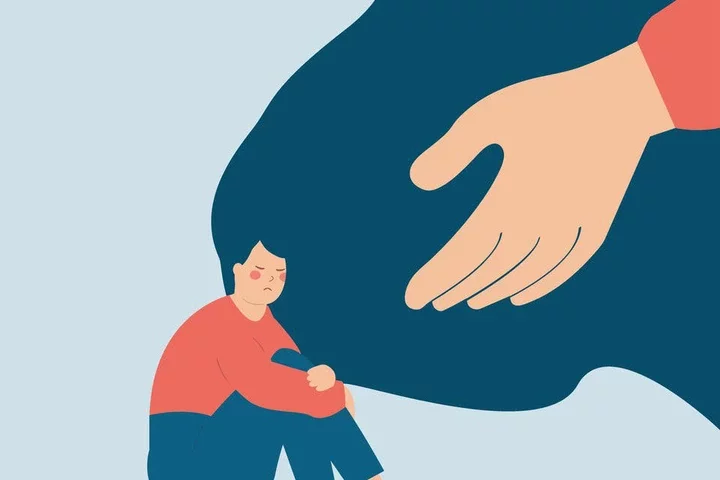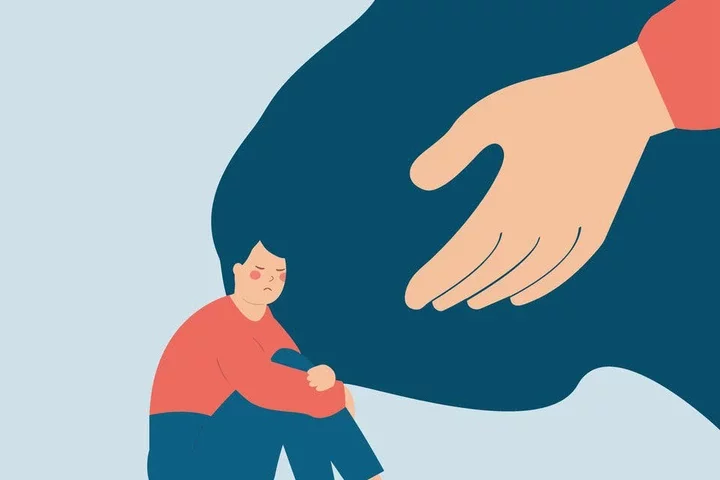

If you’ve ever seen someone close to you in an abusive relationship, your first instinct most probably would be to help. Maybe you wonder if you could say something that might make them see the truth or wish you could’ve stepped in sooner.
You might replay conversations in your head, wondering what signs you missed or how things could have been different if they had just reached out. It’s natural to want to protect someone you care about, to offer advice or to try to “wake them up” to what’s happening.
But there’s usually more to the situation than meets the eye. Abuse isn’t always physical or obvious. It can involve emotional manipulation, financial dependency or deeply ingrained trauma patterns. Sometimes, the person doesn’t even realize what they’re experiencing is abuse.
Factors like fear, guilt, shame or the hope that things will eventually get better can leave someone feeling stuck. Even when a way out exists, it might not feel real or safe to them.
That’s why your words matter more than you think they do. They could either build trust or accidentally deepen their silence.
Here are three things to avoid saying to someone in an abusive relationship.
1. ‘Why Don’t You Just Leave?’
While this question may seem logical, it oversimplifies a deeply complex and emotionally charged situation.
A 2022 study published in Frontiers in Psychology explore how people decide to leave abusive relationships, focusing on two main factors: “promoters” and “accelerators.” Both factors influence the decision to leave, but in different ways:
-
Promoters. These are factors that slowly increase the chances of someone leaving an abusive relationship. They don’t necessarily make the person leave right away, but help them start thinking about it. For example, realizing that the abuse is affecting their children may make them consider leaving, though they might not act on it immediately.
-
Accelerators. These are stronger, more urgent factors that speed up the decision to leave. For instance, if the person realizes their children’s safety is in immediate danger, this could push them to leave the abusive partner quickly.
Researchers highlight that the process of leaving is not a simple, step-by-step process. Instead of following a clear path, the decision to leave can happen suddenly or unexpectedly. Sometimes, even after planning to leave, a victim may decide to stay with the abuser for a while.
There is also resistance to change, meaning that even if there are forces pushing someone to leave, other factors, like fear of the unknown or emotional attachment to the abuser can make it harder to actually leave.
The study challenges the idea that separation happens because of a single, big turning point. Instead, it suggests that leaving is the result of multiple, complex factors interacting over time. Support for survivors should also be more flexible and tailored to each person, focusing on their unique situation instead of just following set steps or stages.
In this context, the question “why don’t you just leave?” is disempowering, failing to acknowledge the complexity of the decision-making process. It doesn’t consider the emotional struggles or the external influences that make the situation far more complicated than simply choosing to leave. This emphasizes the need for a more empathetic approach, one that acknowledges their situation and the complexities that keep them stuck.
2. ‘Why Didn’t You Tell Me Sooner?’
This may seem like an innocent question, but it can unintentionally trigger guilt, shame or defensiveness. This question shifts the focus from acknowledging the courage it takes for the survivor to disclose their situation to questioning their timing.
A 2021 study explored why victims of domestic violence sometimes choose to share or withhold their experiences with healthcare professionals. Researchers found several personal barriers that prevent victims of domestic violence from disclosing their experiences, such as fear of retaliation from the abuser or the loss of children and feelings of guilt, shame or self-blame that make it difficult to speak out.
Some victims may not even recognize their situation as abuse and may not think to report it, while others may distrust healthcare professionals, fearing they won’t be taken seriously or treated with respect. This highlights the complexity of disclosure and why sensitive, empathetic and non-judgmental approaches are crucial in supporting victims.
Researchers found that if victims feel blamed or ignored, they may be less likely to ask for help again. Negative reactions can make them feel more powerless or unsafe. These experiences can also retraumatize them, making them feel even more helpless.
This explains why survivors often take time to open up and why the manner in which someone responds, be it a friend, colleague or professional, plays a huge role. Even a brief moment of genuine connection, such as listening without judgment or offering warmth and presence, can encourage a survivor to finally speak. It’s not about saying the “perfect” thing, but about making them feel safe, heard and validated.
3. ‘Why Don’t You Just Talk To Them About It?’
This may seem like a reasonable suggestion, but in abusive relationships, communication often doesn’t solve the problem. In fact, it can escalate the situation.
Power dynamics in abusive relationships are unequal and attempting to resolve issues through conversation can often provoke further conflict, especially when one partner uses communication as a means to control or manipulate the other. Abuse isn’t a misunderstanding or an issue that can be solved by “just talking.”
Instead, it’s a pattern of control and harm that goes beyond simple communication breakdowns. Confrontation or discussions can trigger aggression, psychological abuse and sometimes even physical violence, further entrenching the power imbalance.
A 2022 study published in the Journal of Interpersonal Violence examining men with a history of cumulative childhood trauma found that having a higher number of different forms of childhood trauma is associated with a higher risk of perpetrating intimate partner violence.
Such men are also likely to engage in dysfunctional communication patterns, such as demand-withdrawal (where the man makes demands or criticizes his partner, while the other person withdraws in response).
These patterns are not just misunderstandings; they reflect deep-seated issues like distorted attachment needs, emotion regulation difficulties and learned models of violence.
When individuals with these patterns attempt to communicate, it often leads to psychological abuse (such as insults and threats), physical violence and coercive control, rather than resolution. This underscores that communication in abusive relationships can escalate the situation, particularly when the core issue is power and control, not miscommunication.
To provide the right kind of support, you could instead let them know with certainty that they aren’t alone and you would help them navigate the solution in your best capacity. Let them know they can and should seek out professional help or a support group, as this could assist them in navigating the situation safely.
How To Offer Support With Sensitivity And Empathy
Supporting someone in an abusive relationship requires more than just offering advice. It requires a compassionate and non-judgmental approach. Acknowledge that the person’s experience is complex and their feelings are valid.
Instead of focusing on what they “should” do, offer them the emotional support they need to feel safe and heard. Reassure them that they are not alone and that there are people and resources available to help them.
Focus on providing a consistent and safe space where they feel empowered to make their own decisions. Simply being present and offering practical resources can be a lifeline in moments of confusion or fear.
Ultimately, let them know they deserve to be treated with respect and that there is hope for a safer and healthier future. Your support can be the catalyst that helps them find the strength to take the next step, at their own pace and on their own terms.




